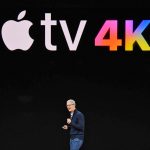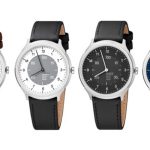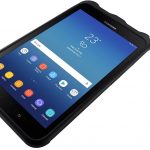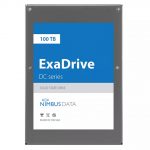Maybe We Should Just Rent Our Gadgets
By now, consumers of modern electronics should realize that they don’t entirely own the hardware they buy.
In an age of persistent, automatic software updates, only the newest devices are guaranteed to run well, and features that work one day may be removed the next. Meanwhile, some devices are so dependent on the Internet that they sometimes stop working altogether. (See: Revolv’s smart home hub and Eyefi’s wireless SD cards.)
If we’re effectively just licensing our hardware these days, why even bother keeping up the charade of ownership? Maybe it’s time we subscribed to our devices instead, just as we do with the all Internet-based services those devices depend on.
A startup called Grover is now embracing this philosophy, offering gadget rentals on a month-to-month basis. While Grover has a long way to go in terms of execution, the underlying idea seems evermore appealing.
How Grover Works
Grover previously launched in Germany under the name ByeBuy, and is now available in New York City, with more U.S. cities to come later. Head to Grover’s website, and you’ll find dozens of devices to rent on a monthly basis, from smartwatches to laptops to home weather stations to virtual reality headsets. You can even rent an original Nintendo Entertainment System (in case you don’t feel like waiting for Nintendo’s miniature version).
While Grover is not the first online company to offer gadgets for rent, it’s the only one that emphasizes long-term rentals across lots of consumer device types. By comparison, Lumoid offers week-long gadget rentals with an emphasis on trying before you buy. Parachut offers longer rental periods, but only for photography gear and drones.
“You don’t need the product. You need the service from that product,” says Michael Cassau, Grover’s founder. “We believe this is the right thing to do now in terms of how people interact with a product.”
Unfortunately, Grover’s pricing is high enough that it probably won’t be better than ownership for most people. Renting an Apple Watch Sport, for instance, costs $35 per month for a 38-mm model in black. Buying the same watch from Apple costs $299, which means you’d come out behind after just nine months of use.
The pricing is similarly disadvantageous in other categories. An Xbox One costs $30 per month, versus $300 to buy. A 9.7-inch iPad Pro is $60 per month, versus $599 to buy. Grover will stop charging for rentals three months after customers have matched a device’s MSRP, but that’s not so much an incentive as it is protection against being ripped off. Besides, any products you end up keeping through Grover aren’t guaranteed to have the same manufacturer’s warranty you’d get by purchasing new. (Most electronics come with a year of warranty coverage.)
Pressed on these issues, Cassau says he expects prices to come down, assuming the company gains customers and, accordingly, more buying power. Grover also wants to spend time gathering data on what people are willing to pay.
“The bigger our community, the more users we have, the more important we are to brands and retailers, the lower our prices can be,” Cassau says.
To that end, direct rentals aren’t Grover’s only angle. The startup also wants to partner with retail stores—both online and offline—to offer rentals as an option at checkout. Cassau argues that retailers don’t want to deal with buying and operating a separate inventory for rentals. Still, Grover hasn’t made any such arrangements yet, and Cassau acknowledges that there’s little to stop a major retailer like Best Buy from offering rentals on its own.
“It’s a big corporation. We’re a startup. We want to make sure that if they do it, we do it better,” he says.
The Internet Of Things That Break
If there’s one area where the rental approach really makes sense, it’s the blossoming category of home appliances that are made smarter through an Internet connection.
Right now, investing in a smart home system is a crapshoot, with too many competing standards. It’s hard to know if the smart thermostat you purchase today will be compatible with the smart door lock you purchase five years from now. And because so many of these devices depend on remote Internet servers to function, you could end up with a product that eventually ceases to function.
A hardware rental model would reduce these risks. If a device no longer fits in with the rest of your setup, or stops working the way you expected, you’d simply swap it out for a different one. And for devices that are supposed to save energy—such as smart thermostats, lightbulbs, and outlets—you could easily measure the drop in your monthly electric bill against the amount you’re paying in subscriptions.
This approach only makes sense, however, if the rental costs are reasonable, and the hardware selection has enough breadth and depth. Grover isn’t there yet. But in speaking to Cassau, he seems to sense the opportunity.
“When we talk to retail, they say, ‘Oh, wow. IoT is going to come, it’s a big thing,'” Cassau says. “I don’t think people will purchase [these devices] all the time. It has to be a subscription model, and I think this is where we will be very present.”
Fast Company , Read Full Story
(15)













